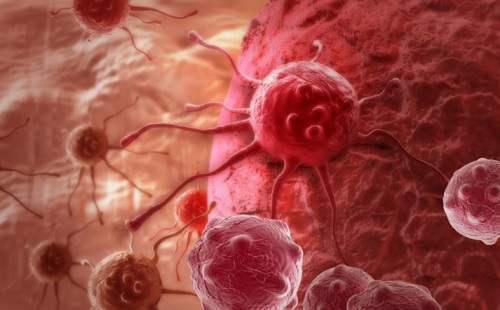Swiss and German Researchers Discover That the Amino Acid Isomer D-Cysteine Can Stop Cancer Cell Growth
Nikhil Prasad Fact checked by:Thailand Medical News Team Oct 28, 2025 3 months, 3 days, 1 hour, 30 minutes ago
Medical News: A breakthrough discovery in cancer treatment
In a promising new finding, researchers from the University of Geneva in Switzerland and Philipps-University of Marburg in Germany have identified that a special form of the amino acid cysteine, known as D-cysteine, can slow the growth of certain cancer cells without harming healthy ones. This groundbreaking study opens the door to developing more targeted and less toxic cancer therapies that focus only on tumor cells. Unlike most existing cancer treatments that damage both healthy and cancerous tissues, this discovery shows how cancer’s own metabolic weaknesses can be used against it. In this
Medical News report, scientists revealed that D-cysteine interferes with key cellular processes in cancer cells, causing them to stop dividing and eventually die.
 Swiss and German Researchers Discover That the Amino Acid Isomer D-Cysteine Can
Swiss and German Researchers Discover That the Amino Acid Isomer D-Cysteine Can
Stop Cancer Cell Growth
Understanding the power of the mirror molecule
Amino acids are the building blocks of life and exist in two mirror-image forms called L and D forms. The human body typically uses only the L forms to make proteins. However, the researchers found that the rarely used D form of cysteine behaves differently inside the body. Cancer cells with a special transporter on their surface can absorb D-cysteine, while healthy cells cannot. Once inside the tumor cells, D-cysteine disrupts a vital mitochondrial enzyme called NFS1. This enzyme is essential for producing iron–sulfur clusters that support many life-sustaining functions, including cellular respiration, energy production, and DNA repair. When NFS1 is blocked, the cancer cell’s ability to breathe, grow, and maintain its DNA collapses.
Targeting cancer cells without harming normal ones
Lead researcher Professor Jean-Claude Martinou from the University of Geneva explained that this transporter acts like a “gate” found mainly on cancer cells. His team demonstrated that when D-cysteine enters through this gate, the cancer cell stops growing. In collaboration with Professor Roland Lill from the University of Marburg, they further confirmed that D-cysteine essentially shuts down the mitochondrial machinery. Laboratory tests showed that tumors exposed to D-cysteine experienced reduced respiration, severe DNA damage, and complete cell cycle arrest.
Promising results in animal studies
When the scientists tested D-cysteine in mice with aggressive breast cancer, the results were remarkable. Tumor growth slowed significantly, yet the animals did not suffer from major side effects. This suggests that D-cysteine could be a safer alternative to many current chemotherapy drugs, which often cause debilitating symptoms. The researchers are now studying whether D-cysteine could be safely used in humans and how it can be adapted into potential cancer treatments.
A simple but powerful new strategy against cancer
According to the study, the secret behind D-cysteine’s selectivity lies in how c
ertain cancer cells overproduce a transporter called xCT/CD98. This transporter imports D-cysteine, leading to a self-destructive process inside the cell. At the same time, most healthy cells lack this transporter, making them resistant to D-cysteine’s effects. The team also noted that many cancer cells are deficient in an enzyme called DAAO, which normally breaks down D-cysteine into protective molecules. Without this enzyme, the cancer cells become even more vulnerable.
Conclusion
This study presents D-cysteine as a groundbreaking discovery that could lead to a new generation of cancer treatments targeting only tumor cells while leaving healthy ones untouched. By exploiting specific weaknesses in cancer metabolism, researchers have shown that D-cysteine can selectively stop cancer growth by disrupting mitochondrial energy and DNA production. If further human studies confirm these results, this small amino acid could become a major turning point in cancer therapy, offering hope for more effective and less harmful treatments in the future.
The study findings were published in the peer reviewed journal Nature Metabolism.
https://www.nature.com/articles/s42255-025-01339-1
For the latest on cancer research, keep on logging to Thailand
Medical News.
Read Also:
https://www.thailandmedical.news/articles/cancer
